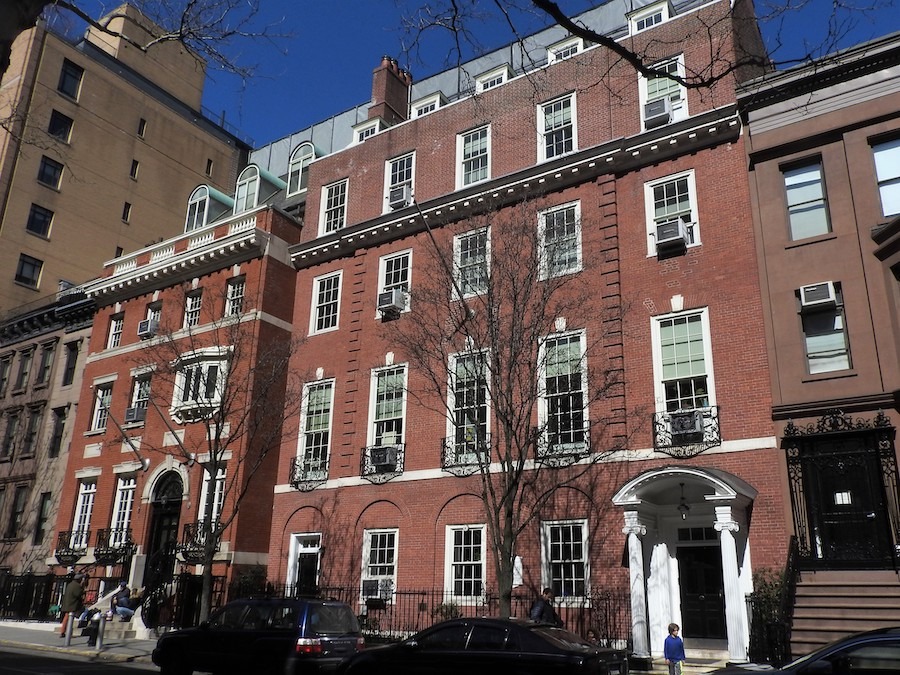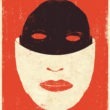“I got that ni–er c–nt suspended.”
That’s just one example of what being Black at the Dalton School was like for me—and I had a generally positive experience there—amazing, in fact.
No one went through Dalton at the time without knowing of the Washington clan. I had deep ties in the arts, especially in the theatrical arts that would become my adult occupation. I was also pretty legendary as the first female-identifying person to join the middle school football team (I became a first-string defensive end in my second year). My brother was a football captain in high school and a staple of the dance department. My ever-illustrious mother was on Dalton’s board of trustees for six years.
By her own example, my mother engendered a feeling of belonging that we always carried with us; that we had a legacy at Dalton that no one could take from us. We were there on scholarship, but that didn’t make either of us any less a Daltonian than the kids whose parents managed hedge funds or came from a long line of money or affluence. Our school motto, “Go forth unafraid,” was something I took to heart and managed to inject into every part of my 11-year experience there. It shaped how I went about interacting with the world, both inside and outside of its walls. And I was able to do more than just get by—I thrived at Dalton.
The school held a special place in my heart: between classes, play rehearsals, and study sessions, I felt like I owned those halls. Even after graduating, I would visit the school a couple of times a year to check in with the usual suspects and traipse the hallways of my alma mater with a feeling akin to coming home.
Fast forward to 2020—the proverbial end times.
In the wake of George Floyd’s murder and the subsequent protests, marches, and rallies that rocked the nation, I felt a combination of grief and determination. I was looking to institutions I was familiar with in earnest—hopeful that at least Dalton, my home away from home, had spoken out against this grave miscarriage of justice and the festering of anti-Blackness in the United States that was finally coming to a head. To my dismay, what I found instead was a lot of fumbling as the school and its leadership attempted hackneyed dialogues with various constituencies.
Following some open questioning of the school on various social media platforms, I was contacted by the creator of the Black at Dalton Instagram page. Subsequently, we became collaborators, and as the summer progressed I found myself becoming the “face” of the page, commonly used to moderate events and do press whenever necessary. However, as time wore on, it was clear that we were at odds as to how the movement should progress, so in August 2020, we parted ways.
One thing in particular that I noticed and wanted to rectify was that, between experiences with Dalton itself and necessary affinity spaces such as Black at Dalton, there was a dearth of spaces that encouraged all of our disparate constituencies to come together. I wanted to go about bringing together a group consisting of my alumni peers and me, along with the occasional faculty member, parent, and student.
Since August, we have been meeting over Zoom twice a month under the acronym DARC—Dalton’s Anti-Racism Coalition. In this space, together, we create plans of action to hold the school accountable, we brainstorm plans to help it progress in its anti-racism efforts, and we are able to provide the opportunity for people across all communities to come together and have these messy conversations—conversations that are intrinsic to the anti-racist world we seek to bring into being.
Events over the 2020-21 school year—including a leaked teacher proposal and subsequent in-fighting between the parents, faculty, and administration—led to the creation of a document by an anonymous group of parents and alumni, who titled it and crowned themselves “Loving Concern @ Dalton.” They missed the good old days of a “traditional” Dalton education and lamented the school’s attempts at prioritizing an anti-racist education. To them, anti-racism is the bogeyman, and their children are “innocent” victims of its implementation.
Parents wrongly decry anti-racism in their children’s education—they erroneously believe that making space for anti-racism will somehow taint their children and force them to feel some sort of guilt that will rob them of the joy and freedom from care of youth. White parents in particular lament what they see as the “loss of innocence” of their children—but what of my innocence? Children of color, and especially Black children, feel an unparalleled burden when buying into primarily white institutions like Dalton and are the most likely to be burned by the traditional cultures that permeate those spaces, as they are designed to protect the status quo.
The boy who first bullied me and got me suspended when I tried to defend myself would later gleefully utter the aforementioned slur to a small crowd of onlookers. He was in the fifth grade. He was never held accountable by the school for his actions, and I was left feeling undervalued and unprotected. As communities like Dalton continue to diversify, so too must we evolve in the ways in which we teach and promote a culture of respect. Not to be “more P.C.” but so that everyone comes out of the experience a little more kind, a little more thoughtful, and a lot more discerning—not only about an individual action or word that might be wrong but why, and what steps can be taken to change it on a macro level.
My story is one of many. This boy was not an exception; his actions and words were a symptom of a much larger problem that doesn’t leave a school even as liberal as Dalton untouched. Racism—that never-ending stain on “American values”—is still very much alive and well. Just ask George Floyd, Breonna Taylor, or Ahmaud Arbery. People see it, and yet there is still constant pushback because they can’t imagine they are part of the problem, and they see the push for anti-racism as an unwelcome or unnecessary indoctrination. This language and thought process infuriated quite a few people when it made the rounds online, myself included, so I gathered up fellow members of DARC and we came up with a rebuttal of sorts that specifically called out the authors of the Loving Concern @ Dalton letter and called on the wider community as well to take part in this new and necessary anti-racist future.
Brought back to basics, anti-racism is simply defined as the active fight against racism. It is a necessary part of our growth as we confront our history and where we find ourselves in the present day. Racism is alive and well. If you “object to” and therefore are against anti-racism, I’d hate to see your face when I explain to you what the opposite of it is and what you are aligning yourself with. No one should have to argue the merits of anti-racism any longer—they aren’t up for debate.
You can get on board, or go somewhere else.
Zuri Washington is an actress and alumni of the Dalton School from the class of 2009. She is a staunch advocate for progressive policy and has been doing work to edify her various communities when she is not taking the stage by storm.
The following articles provide background on the controversy over race at the Dalton School:
https://airmail.news/issues/2021-2-27/class-war



